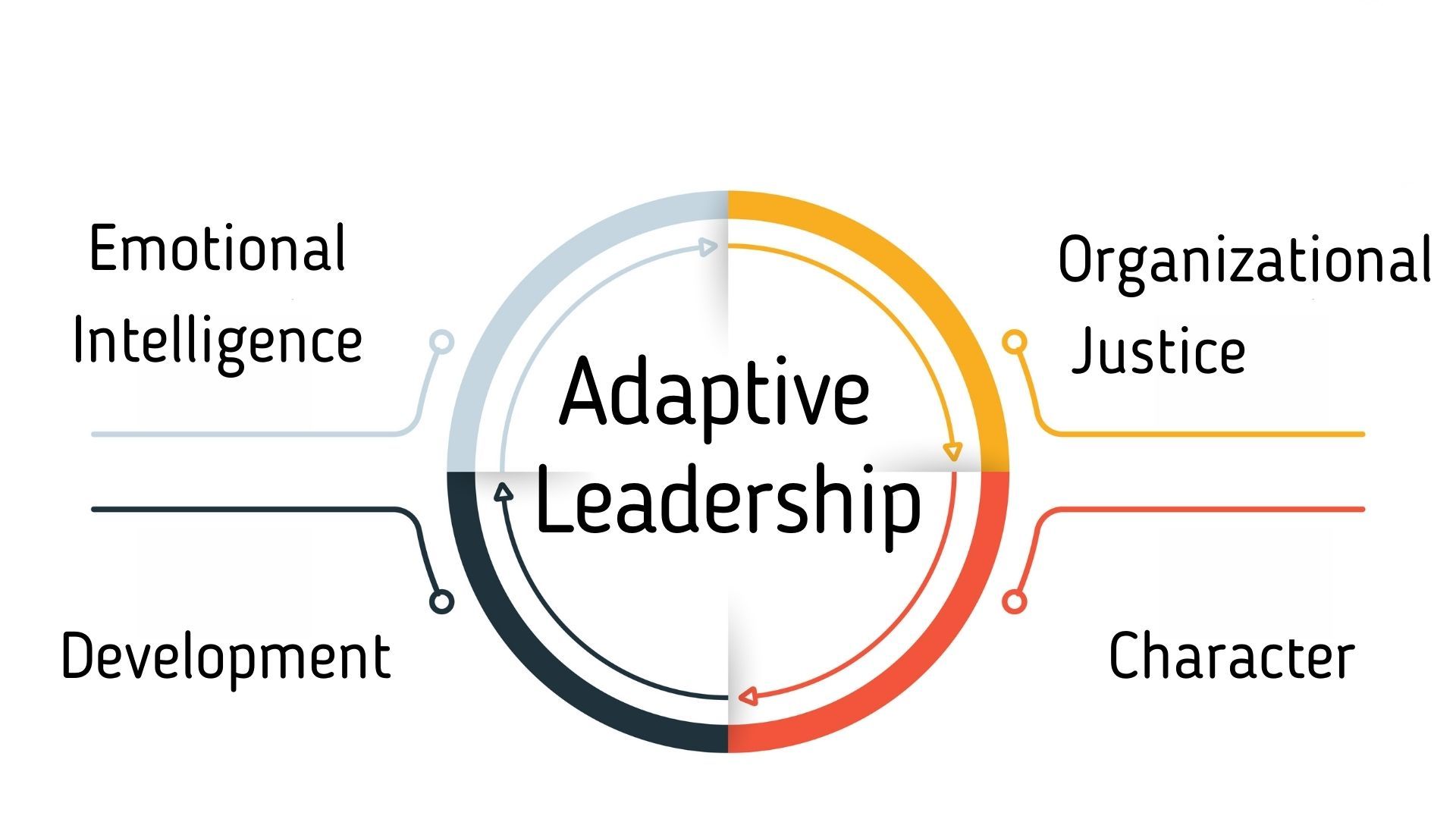Adaptive leadership is a leadership model that empowers you to adeptly and effectively respond to a crisis. The practice of adaptive leadership was introduced by Dr. Ron Heifetz and Marty Linsky at Harvard University, United States.
In the words of Heifetz
Adaptive leadership is an act of mobilizing a group of individuals in a manner that they can handle tough challenges and emerge triumphant in the end.
What is Adaptive Leadership?
Adaptive Leadership is an effective leadership system that helps people, businesses, or organizations to adjust and flourish in testing conditions. It empowers someone to be capable, both exclusively and aggregately, to take on the steady yet significant cycle of progress.
When you understand that your goals, developments, and progress you need to accomplish can’t be accomplished through your present methodologies, adaptive leaders know how to analyze, understand, and improve to develop the abilities that coordinate with your objectives.
All in all, adaptive leaders comprise powerful strategies for intentional and situational development on a continuous basis. Adaptive Leadership is useful in characterizing the frontier of leadership training and development.
An adaptive leader responds to crises via anticipation, articulation, adaptation, and accountability.
Primary Principles of Adaptive Leadership
The practice of adaptive leadership revolves around four principles that empower a leader to adapt to rapidly changing environments. Let’s have a look upon those principles right away-
1. Emotional Intelligence
Emotional intelligence lets adaptive leaders have the capacity to perceive their own feelings as well as of others. With this mindfulness, adaptive leaders can construct trust with various members and cultivate quality connections to overcome all sorts of challenges that might occur with the employees of an organization.
2. Organizational Justice
The second principle of adaptive leadership is encouraging a culture of genuineness. Adaptive leadership realizes the best arrangements best-suited for an organization and situation. Adaptive leaders additionally realize the ideal approaches to present these progressions so that individuals embrace them. Such leaders will accommodate others’ perspectives, subsequently guaranteeing that they are esteemed and regarded.
3. Development
Adaptive leaders like learning new things to channelize development while facing a new problem or challenge. If one procedure isn’t yielding wanted outcomes for a business, an adaptive leader leaves their approach to find new methodologies that can work. With new strategies, both the workers and the organization everywhere will channelize development and improvement.
4. Character
An adaptive leader is tied in with having a profound feeling of character like being straightforward and inventive. Adaptive leadership may not always be correct; however, they acquire the admiration of those they work with and practice what they suggest.
Qualities of the Successful Adaptive Leaders

There are certain characteristics that each adaptive leader should have including
1. Capacities to manage changes
- The capacity to connect organizational change to the essential qualities, capacities, and dreams of all the partners in question
- The ability to establish a climate that accepts various perspectives and explores the benefits of such aggregate information to profit the organization
2. Better anticipation and persistence
- Adaptive leadership comprehends that adapting to changes can be an excruciating interaction. Consequently, the leaders can anticipate and check any hesitant conduct from partners
- Such leaders have an agreement that huge changes are the gradual procedure that calls for determination and an eagerness to bear the pressure of different changes
3. Being proactive, open, and having acceptance
- Successful leaders are proactive, and they search for fortunate circumstances while handling changes. Adaptive leaders accept when they themselves commit errors. They also do not hesitate to change or desert non-profitable techniques
- Adaptable leaders are open to experimentation and risks. They also enjoy and empower innovation among workers
Difference between Technical and Adaptive Issues
Adaptive leadership perceives that there are two sorts of issues: technical and adaptive.
With technical issues, an acceptable pre-decided reaction is accessible, and at least one specialist who has strong repute is looked to address the issue. Generally speaking, specialized or technical issues can be settled by experts.
With adaptive issues, there are no professional specialists to manage the current issues. Likewise, no arrangement of established standards or systems exists to address the issue. Much of the time, the meaning of the issue is obscure, and there aren’t any technical fixes.
It is in such circumstances that the mastery of an adaptive leader comes into play. Such leaders first characterize the issue and afterward activate their associates to think of potential answers.
Challenges Faced by Adaptive Leadership
Adaptive leadership has a few difficulties. This leadership model is tied in with testing, finding new information, and making various changes all through your organization.
Adaptive leaders through a difference in perspectives and change of approaches figure out the best ways to support changes and flourish, but ensuring change in values, convictions, and insights of other people is typically quite troublesome. This is one of the most common challenges that adaptive leaders need to handle.
It is also challenging for adaptive leadership to handle various types of opposition. Different perceptions could be from your workers, other partners, or customers.
And finally, the toughest challenge that an adaptive leadership might face is the reluctance of the leaders to others’ viewpoints.
So, adaptive leadership needs to manage these challenges effectively.
To be a successful adaptive leader, you need to listen to individuals who disagree with them, plus you should also be ready to accept your mistakes and come up with new ideas by having the power of acceptance and understanding others’ perceptions.
Incorporating credible statistics while making adaptive strategies will help you grow operationally and financially.
Wrapping Up!
On the concluding note, we hope you would have understood what is adaptive leadership and how it helps contemporary leaders in today’s uncertain and volatile corporate world.
Corporate leaders should have the ability to adapt to new strategies and techniques for overcoming any challenges. Adaptive leadership comes into play in all such situations to optimize the performance and effectiveness of the leaders.
How effective do you find adaptive leadership in leading/managing a team? Share your views with us in the comment section below.
Pinky is an MBA in Marketing from the University of Mumbai. She loves helping people out in learning Marketing and sharing latest ideas and tactics for growing businesses.
